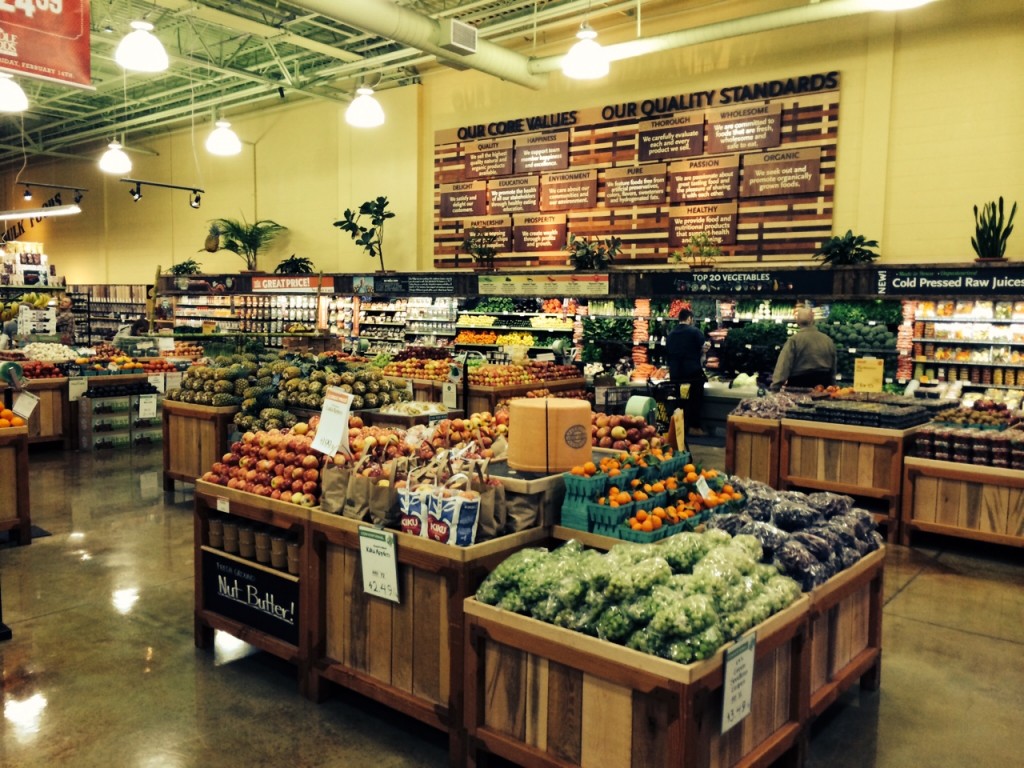Guest post from Jenny with Juice Plus:
If you’ve been following any of my Wednesday posts, you know that I place a lot of importance on including a wide variety of fruits and veggies in my families diet. And as I shared last week, I am super excited to grow our own organic fruits and veggies right on our patio in our new Tower Garden this spring and summer.
I’m certainly looking forward to save money by growing our own organic produce. That being said, there are certain types of produce that the Tower Garden simply can’t accommodate. Let’s just say that while the Tower Garden is amazing, it simply isn’t going to be able support an entire apple tree or grapes on the vine (*sigh*. .
. the dream of having my own vineyard is still just a dream (: ) So, of course, there are items like potatoes, apples, grapes, and carrots that I will continue to purchase at the grocery.
When possible, I do buy” organic” because it is generally safer and healthier for my family. Unfortunately, buying organic can definitely put a dent in my wallet! Sometimes organic produce can cost up to twice the price of traditionally grown produce. That adds up fast! I’ve gotta save some money for diapers (or wine (: ), right??

So, I started wondering which produce is it best to buy organic , and which ones I could save some money on by buying non-organic. Below is a list of fruits and veggies that you can feel safe skipping over in the organic section, followed by a list of fruits and veggies for which it is definitely beneficial for you health to splurge on organically grown. We will call these the “Dirty Dozen”. I hope this helps you make better informed decisions to stay healthy and save money!
Things You Can Safely Buy Conventional (Non-organic)
Here is a list of fruits and vegetables found to contain the least amount of pesticides, but wash them anyway, to be on the safe side.
Fruits: Many of these have thick skin that protect the fruit and that we do not eat the skin.
- Bananas
- Pineapple
- Kiwi
- Mango
- Papaya
- Avacado
Vegetables : All of these vegetables face fewer threats from pests, which means they require few pesticides.
- Asparagus
- Broccoli
- Cabbage
- Onions
The Dirty Dozen: Things to Buy Organic
Fruits and vegetables with thin or edible skins tend to get sprayed more and absorb more pesticide residue. Always buy these ones organic. Here are some tips I found on :
Fruits:
- Apples The skin of apples has lots of vitamins, so you don’t want to peel it off. But even if you do, apples are a big pest target, heavily sprayed and often washing and peeling doesn’t get off all of the chemicals.
- Blueberries This anti-oxidant powerhouse berries are among the ‘dirtiest’ of fruits. They’re sprayed with dozens of pesticides so make sure you buy fresh, organic blueberries. Or pick wild.
- Grapes It’s important to buy organic grapes and organic wines. Grapes have thin skin and are sprayed various times during the growing process
- Nectarines Nectarines are heavily sprayed and their delicate skin absorbs the chemicals easily.
- Peaches Peaches are heavily sprayed and their delicate skin absorbs the chemicals easily.
- Strawberries Berries are largely water, so they absorb more pesticides plus we can’t peel their skin.
Vegetables
- Celery Celery is sprayed with organophosphates, which have been linked to ADHD. With no protective skin, they absorb harmful chemicals rapidly and don’t wash off.
- Bell Peppers Their soft skin and lack of a protective layer lands bell peppers on the must-buy organic list.
- Potatoes: Spuds are among the most contaminated veggies. If you can’t find organic, opt for Sweet Potatoes instead. Or try the organic rice.
- Spinach Bugs like spinach more than Popeye. It’s among the most heavily sprayed leafy greens.
- Lettuce Lettuce has the highest water content of all vegetables so they absorb more pesticides. Plus it has a larger surface area.
- Cucumbers Cucumbers have a very high water content so they absorb more pesticides. Cucumbers, at least, can be peeled. If you like that fiber content and crunch, buy organic and leave the skin on.
Others
- Meat
Beef, pork and chicken store chemicals and hormones in their fat, so buy organic meat. At least stay away from the fatty cuts and chicken thighs. Try the organic tofu. - Coffee
Coffee beans grown in other countries aren’t regulated, so look for the USDA Organic label to ensure your coffee doesn’t come with a shot of harmful chemicals.
If you’d like to learn more about how my family gets all the nutrition from 17 different fruits and vegetables everyday with a product I love called Juice Plus+ click here. Or, if you’d like to learn more about how you have grown your own organic produce right on your back patio or deck – check out this info on the brand new Tower Garden.






{ 0 comments… add one now }